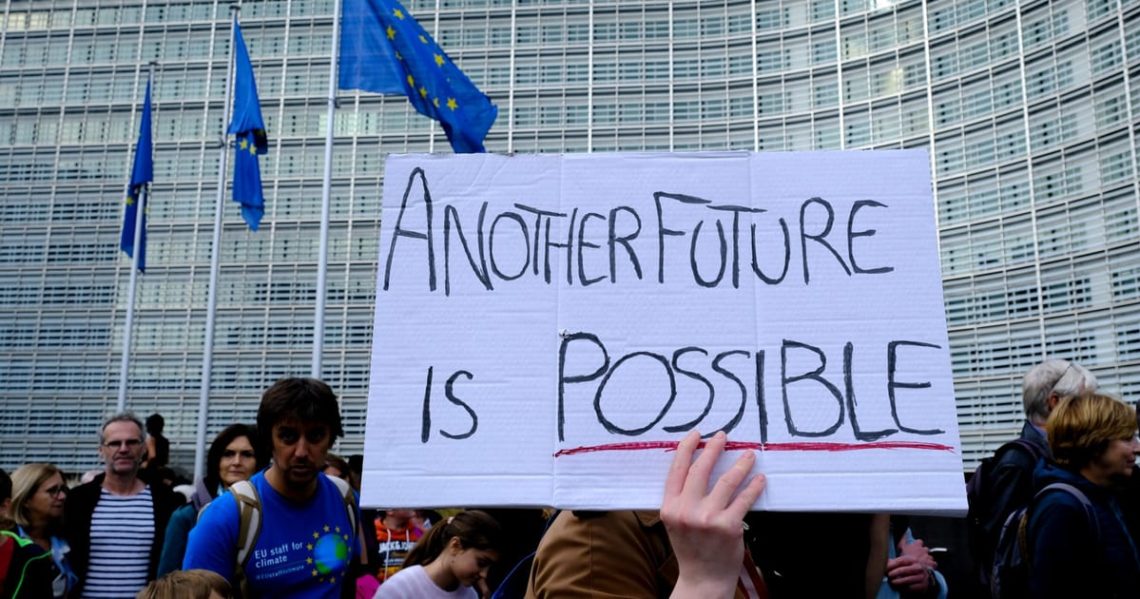Global leaders will soon gather in Sevilla, Spain, for a historic UN Financing for Development Conference — which will set the agenda for how the global economic system will serve development in the coming years. This is the first ever to take place on European soil and the stakes could not be higher.
There are 3.3 billion people who live in countries that spend more on debt interest payments than they do on health or education. This is more than seven times the population of Europe. This money could instead be spent on essential climate investments and basic public services. Many of the same countries are also being hit by the slashing of aid budgets by rich countries, with devastating impacts on initiatives that support health and education, safeguard democracy and defend human rights.
However, the European position for the conference does not seem to appreciate the gravity of the situation and the extent of reforms that are necessary to fix the problems. Europe seems intent on holding on to a dysfunctional status quo instead of supporting the much-needed reform that countries from the global south are asking for.
It wasn’t always like this. Europe helped launch the global financing for development agenda in 2002 with the Monterrey Consensus, a bold agreement that promised action on unsustainable debt, increased development aid and fairer taxation.
Now, 23 years later, European governments are poised to abandon many of these commitments, despite an even bigger debt crisis raging in the global south.
Instead of backing an intergovernmental UN process toward a debt convention, which is supported among others by the Alliance of Small Island Developing States, the African Union and the European Parliament’s Development Committee, European governments are pushing for a watered-down “annual dialogue” involving mostly creditors and a select few borrowing countries. This will be little more than a talking shop that favors the undemocratic, creditor-dominated status quo. They must reverse this stance and back genuine reform.
This will be little more than a talking shop that favors the undemocratic, creditor-dominated status quo. They must reverse this stance and back genuine reform.
Aid is another urgent issue that has to be addressed. Most European governments have repeatedly stated their decades-old commitment to devote 0.7 percent of GNI to overseas development assistance. But the numbers tell a different story. Aid from rich countries dropped by 7.1 percent in 2024, with the UK, France, Germany, the Netherlands and Sweden all announcing cuts this year. The state of global aid is deteriorating rapidly, even though global crises demand more, not less, support.
The state of global aid is deteriorating rapidly, even though global crises demand more, not less, support.
Global south countries and civil society around the world have called for a UN-led process to build consensus on a shared understanding of official development assistance (ODA) parameters, and to develop a new framework that ensures equity, effectiveness and accountability. Yet European governments seem ready to support an OECD-led reflection process. This is not what is needed. The OECD’s Development Assistance Committee, with its exclusive membership, won’t be able to deliver. A similar process set up more than a decade ago did not result in any improvements in the way aid is governed.
Meanwhile, the EU continues to promote its Global Gateway investment initiative, despite widespread concern that it prioritizes European business interests over genuine poverty reduction and sustainable development in partner countries.
The EU could also build up some goodwill in the negotiations by endorsing the terms of reference — the mandate — of the ongoing UN tax convention negotiations. Spearheaded by the Africa Group, the UN General Assembly decided to negotiate a new convention by 2027.
International tax cooperation is a cornerstone of the current effort to shore up finance for development and climate. It remains the most sustainable source of funding for public services such as healthcare, education and environmental protection.
However, the current global tax system is littered with loopholes and undermined by tax havens. It also disproportionately benefits the home countries of investors and corporations. As a result, multinational corporations and wealthy individuals can reap financial rewards from developing countries without paying much — if any — tax, neither in these countries nor globally.
And when wealthy individuals and corporations use tax havens to dodge their fair share of tax, governments often shift the burden on to the poorest through higher taxes on consumers and workers. These regressive tax systems exacerbate inequalities.
And when wealthy individuals and corporations use tax havens to dodge their fair share of tax, governments often shift the burden on to the poorest through higher taxes on consumers and workers.
Like aid, this system has been largely designed through the OECD, where countries from the global south lack an equal footing. Endorsing the mandate for the UN Tax Convention would signal Europe’s commitment to a more inclusive, just and sustainable global tax framework.
Before any attempts to close the Financing for Development outcome document, which will set the agenda for the coming years, European governments should show political will to help build a global economic system that is more just and capable of addressing the urgent challenges of our time. More than 200 civil society organizations and individuals have signed a letter urging European leaders to commit to this transformative agenda.
The path it chooses will not only define Europe’s global credibility, but shape the lives of billions around the world
This article is supported by ActionAid, Act Church of Sweden, Caritas Europa, CAN Europe Christian Aid, Oil Change International.
The post Now is the time to rebuild the global economic system appeared first on Politico.




